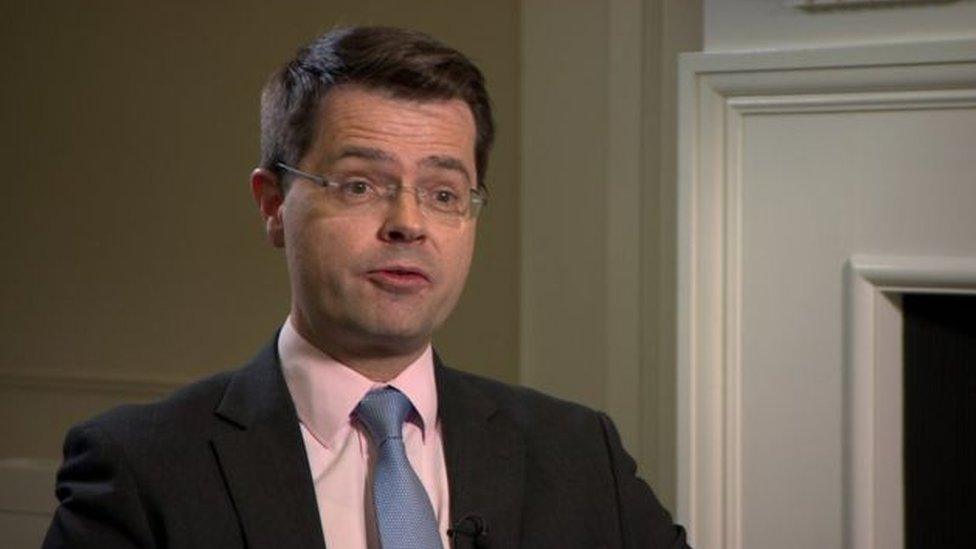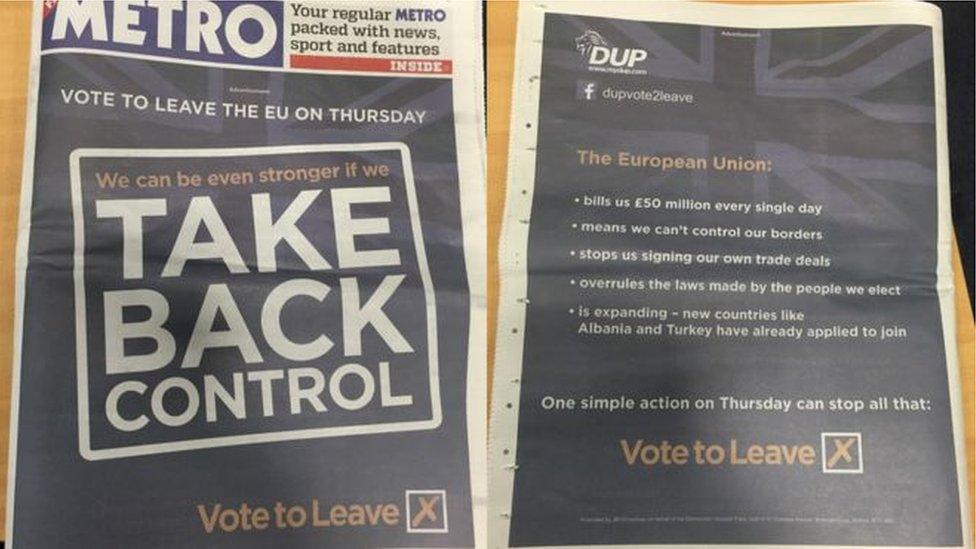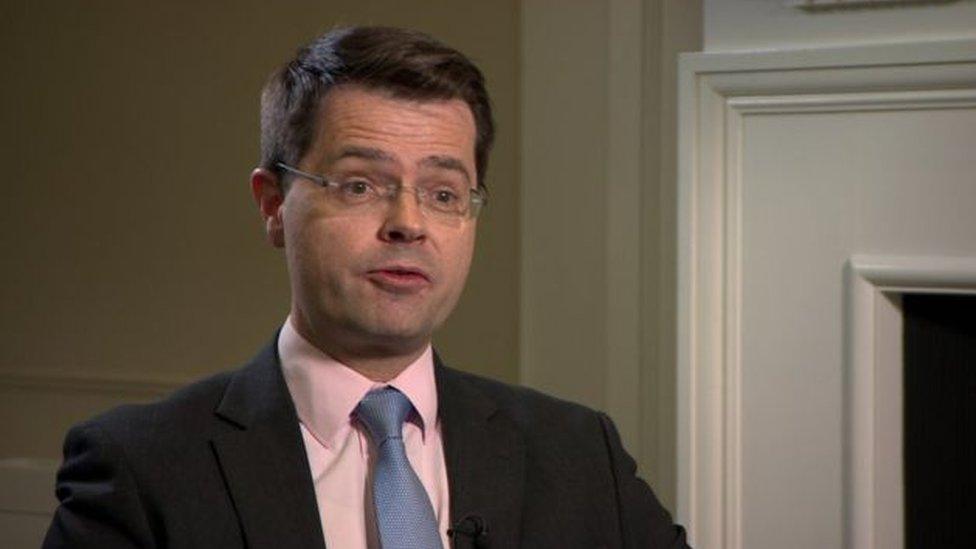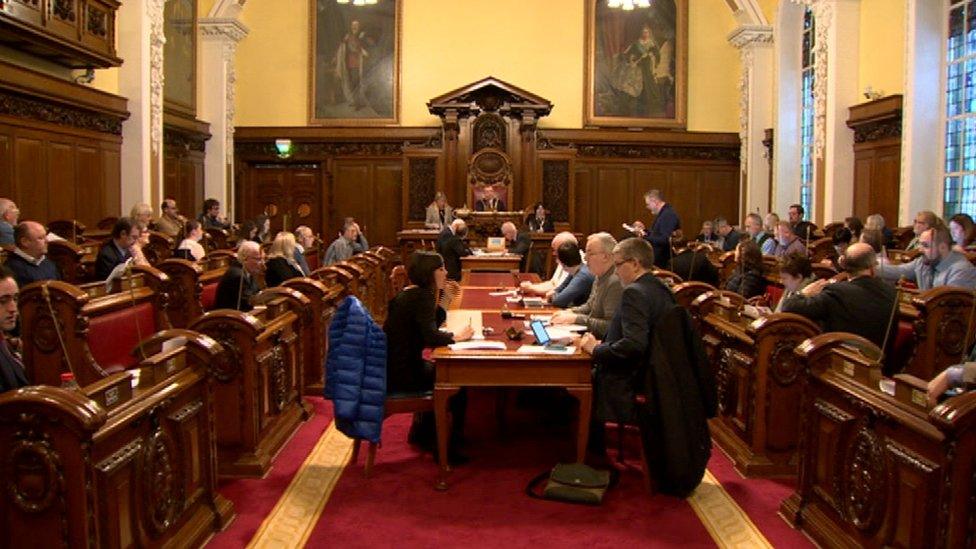Political donations: NI secretary to address transparency issue
- Published

James Brokenshire is to make a statement shortly about publishing the detail of donations to political parties
Northern Ireland Secretary James Brokenshire plans to make a statement "shortly" about publishing the names of those making political donations.
James Brokenshire said he had received a positive response from all the parties about moving to "full transparency".
Unlike the rest of the UK, Stormont parties are not required to reveal the sources of their funding.
Historically, this was due to concerns about the security of donors.
However, Mr Brokenshire said the political and security context had "changed significantly".
He says he will soon make a statement on the "steps needed to ensure that information relating to Northern Ireland political donations and loans can be published".
He was responding to a written parliamentary question from North Down MP Sylvia Hermon.
The independent MP asked him to set out "a timetable to introduce legislation ending the practice allowing anonymity for donations to political parties".
Mr Brokenshire wrote to the parties in January seeking their views on moving to full transparency for Northern Ireland political donations and loans.
He said: "I received a positive response from the parties."

The party took out a wraparound ad in the Metro asking voters to 'Take Back Control'
At that time, DUP leader Arlene Foster declined to reveal the identity of the donor or donors but said the money was properly accounted for "under the rules as they currently stand".
Other parties had called on the DUP to clarify who funded its "lavish" pro-Brexit advertising campaign.
Transparency call
Belfast City councillors have also voted in support of a call to reveal the names of those who make large donations to Northern Ireland politicians.
Alliance wants Northern Ireland to be brought in line with Great Britain where the names of those who donate over £7,500 are published.
When Alliance leader Naomi Long was an MP she secured legislative change that paved the way for the possible future identification of donors who contributed more than £7,500 since January 2014.
However, the names can only be published if Northern Ireland's secretary of state agrees to lift the exemption.
- Published5 January 2017

- Published3 January 2017
